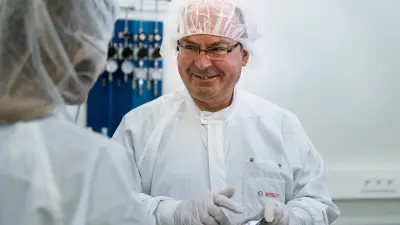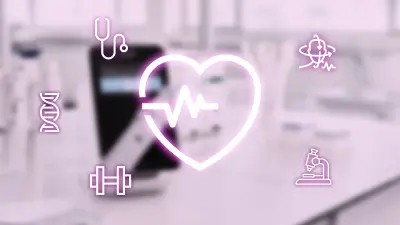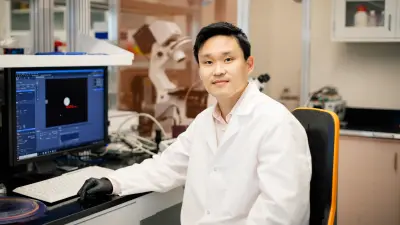Dr. Christian Grumaz
Research engineer, advanced technologies for chemical and biological systems
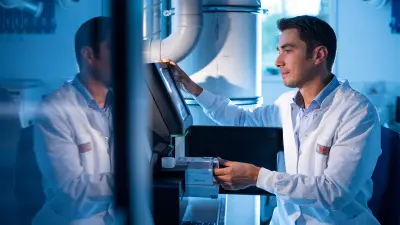
Before joining Bosch Research in 2019, I led the team of a next-generation sequencing unit that provided support for joint research projects with university hospitals, focusing on biomarker discovery and the development of diagnostic assays. Now, at Bosch Research, in my role as an expert in molecular diagnostics and sequencing in the Life Science team, I can contribute to the development of new technologies for next-generation medical diagnostics, especially for point-of-care applications.
Please tell us what fascinates you most about research.
There are very many reasons why I enjoy working in research. However, one thing that really fascinates and motivates me in research is that it is quite literally a never-ending story. Every time you test your carefully prepared hypotheses and think you have found your “final” answer or solution, a number of new questions will also emerge, even if you have indeed found it. Our scientific curiosity means we will never stop improving our knowledge and trying to solve all kinds of scientific puzzles. This is what fascinates me and keeps me passionate about being a researcher.
What makes research done at Bosch so special?
After just a few days of working at Bosch, I felt completely overwhelmed by the vast multitude of disciplines with leading experts all united in one single place. This condensed knowledge, combined with the leading visionary strategists and highly professional project leaders constantly interacting with our business units who know the true market’s needs best, is key for driving forward successful innovations. In our research field Healthcare, we are exchanging knowledge between experts in biology, chemistry, physics, microsystems technology, simulation, electronics, mechanical engineering, and material engineering — I simply cannot imagine a more stimulating research environment in a single location.
What research topics are you currently working on at Bosch?
The basic principle of our research work in the team is the synergistic combination of microsystems technology with biological and biochemical system design. We automate and miniaturize diagnostic workflows, which usually run in medical laboratories and involve many manual steps and many different devices. Essentially, we put a large and well-equipped laboratory onto a small chip (lab-on-chip). In this way, we are laying the foundations for more personalized medical diagnostics at the point of care — in other words, where these diagnostics are needed most.
What are the biggest scientific challenges in your field of research?
As we are working on highly sensitive, novel-class biosensors that can target single biomolecules, we also had to develop a strategy for modifying and controlling them in an extremely accurate way for the sensing process. In physics and mathematics, the formulas describe clear dependencies and unambiguous equations, usually with known variables. However, many of our working tools are enzymes that follow the rules of biochemistry, usually with many unknown variables. In the majority of cases, the catalyzed reactions never reach 100 percent and equations to identify optimal conditions are rare, which means they have to be tested experimentally in laboratories. As a result, the biggest challenge we will always have here is to get as close to 100 percent as we can.
How do the results of your research become part of solutions “Invented for life”?
Our healthcare solutions provide the highest standards for the robust and fast diagnosis of many different diseases, such as a SARS-CoV-2 infection. Every time a diagnostic result appears on the screen of our Vivalytic system, the physician can treat it accordingly and the patient comes closer to a healthier life. If that’s not truly “Invented for life”, I don’t know what is.
Curriculum vitae
Since 2019
Research engineer in life science group with focus on molecular infection and cancer diagnostics, Bosch Research
2013
Postdoctoral researcher, functional genomics and next-generation sequencing (NGS) unit, Fraunhofer IGB
2009
Ph.D., studies on host-pathogen interactions, University of Stuttgart
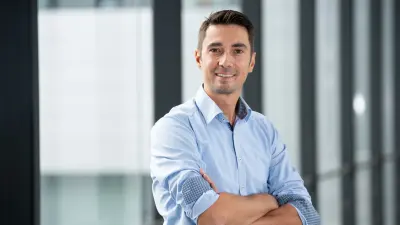
Selected publications

Grumaz, C. et al. (2020)
- Christian Grumaz, Anne Hoffmann, Yevhen Vainshtein, Maria Kopp, Silke Grumaz, Philip Stevens, Sebastian O Decker, Markus A Weigand, Stefan Hofer, Thorsten Brenner, Kai Sohn
- The Journal of Molecular Diagnostics, Vol. 22, Issue 3, P. 405-418

Grumaz, S. et al. (2019)
- Silke Grumaz, Christian Grumaz, Yevhen Vainshtein, Philip Stevens, Karolina Glanz, Sebastian O Decker, Stefan Hofer, Markus A Weigand, Thorsten Brenner, Kai Sohn
- Critical Care Medicine, Vol. 47, Issue 5, P. e394

Grohmann, A. et al. (2018)
- Anja Grohmann, Steffen Fehrmann, Yevhen Vainshtein, Nicola L Haag, Franziska Wiese, Philip Stevens, Hans-Joachim Naegele, Hans Oechsner, Thomas Hartsch, Kai Sohn, Christian Grumaz
- Bioresource Technology, Vol. 247,

Worsch, A. et al. (2018)
- Anne Worsch, Fabian Kurt Eggimann, Marco Girhard, Clemens J von Bühler, Florian Tieves, Rico Czaja, Andreas Vogel, Christian Grumaz, Kai Sohn, Stephan Lütz, Matthias Kittelmann, Vlada B Urlacher
- Biotechnology and Bioengineering, Vol. 115, Issue 9, P. 2156-2166
Get in touch with me
Dr. Christian Grumaz
Research engineer, advanced technologies for chemical and biological systems
